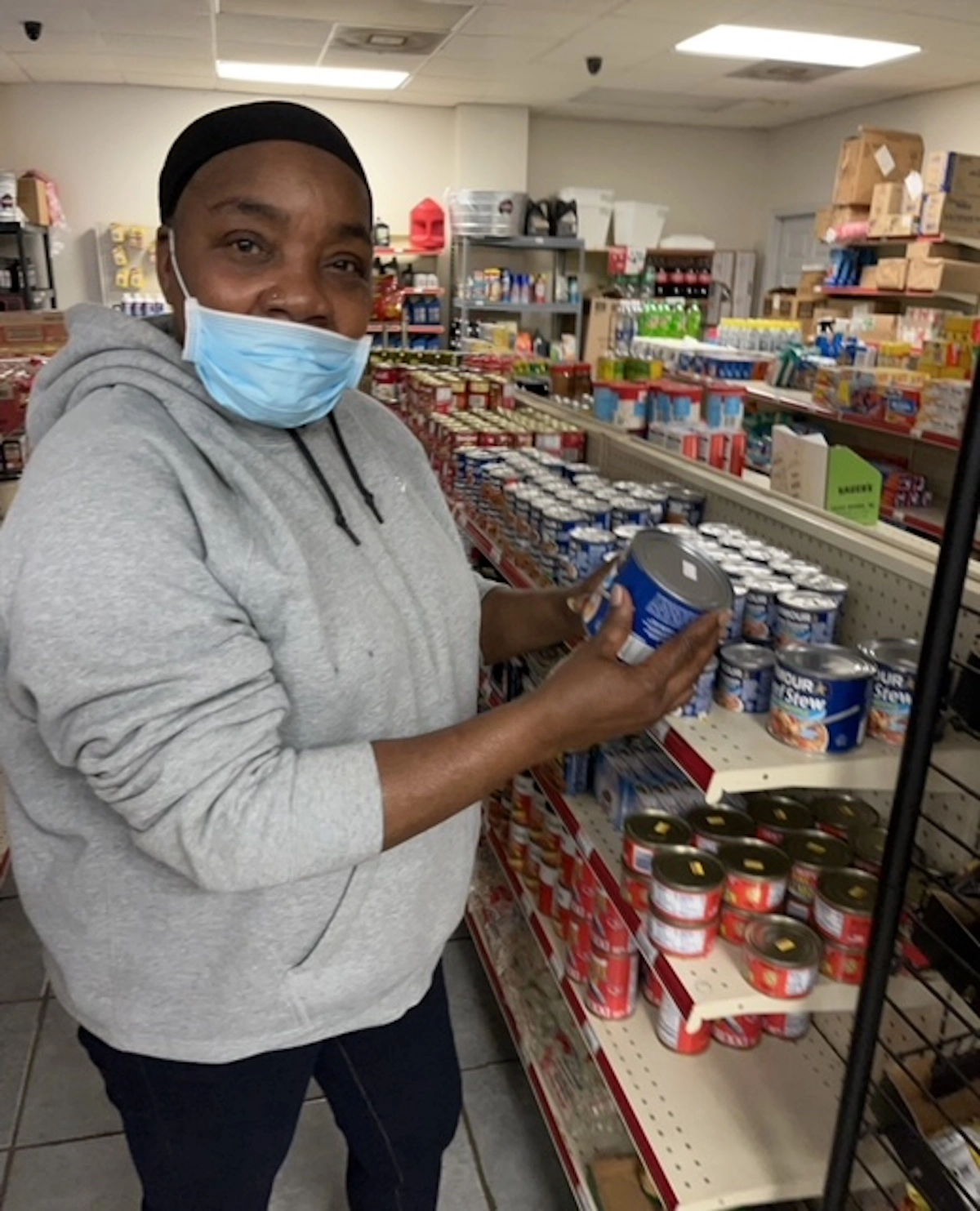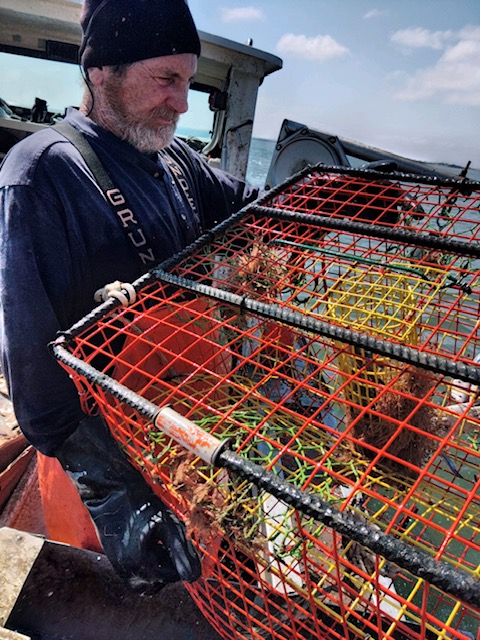DALE – This is a story the U.S. Department of Agriculture doesn’t want you to read.
Eight years ago the Department permanently barred the Albany Grocery Store at the crossroads of Kinlock and Keans Neck Roads in northern Beaufort County from accepting Food Stamps, or in government-speak “participating in the Supplemental Nutrition Assistance (SNAP) Program.”
The community of which the store and a handful of churches are the center is known as “Dale,” and from the store, it is 12 miles to the Laurel Bay Food Lion and 14 miles to the Walmart Supercenter at the Cross Creek Shopping Center in Beaufort. There are no grocery stores closer.
That means that Food Stamp recipients who live in the northern part of Beaufort County which is one of the poorest areas in the county, many of whom do not have cars, must travel many miles to get healthy food.
The Albany Grocery Store is a place unique to the Gullah-Geechie tradition-heavy Dale area. Working people come from miles around to enjoy the store’s fresh-cooked lunchtime fried pork chops, red rice, mac and cheese, baked chicken and “dirty rice” which for the uninitiated means rice with sausage and spices mixed in. There is also often flounder, whiting, or a local catch on the lunchtime menu.
During soft shell crab season, fried soft shells sell briskly from the Albany Store’s kitchen too. How many convenience stores sell fried soft shells? Probably just this one. Why? Because the store’s resourceful owner, Louis Albany, is a crabber too, and he runs a soft-shell crab molting operation out of the back of the “old store” that’s across the street from the “new store” during that short but profitable season which is typically in late April and early May. In season out of the old store Albany also sells fresh crabs and soft shells by the bushel, and seasonally fresh fish and oysters too. In business under just three owners for nearly a century now, the store sells chainsaw bar oil, camo pants, dog collars and baby wipes as well.

“It’s a hardship for me,” said Herbert Fields,76, a heavy equipment operator who attended Robert Smalls High School in Beaufort and who went out on disability in Dale with a crushed hip in 1993. “To go to Beaufort, I got to pay somebody. But to get to the Albany store here I don’t got to pay nobody.”
A round trip ride to the Walmart, Fields explained last week, can cost $25 cash, trips that take painful bites out of his Food Stamps-plus-Social Security-plus-disability monthly budget.
Cynthia Watson, a lifelong Stuart Point resident and no stranger to hardships, agreed. Watson, a single mother, says, referring to the Albany store: “We need that store. They have bread, canned goods, Chlorox detergent, lunch meats and cheese. But now I have to go 10 miles to the Food Lion to get those things.”
Meanwhile, according to The U.S, Department of Agriculture, in 2021, “32.1 percent of households below the federal poverty line were food insecure … and food insecurity was substantially higher than the national average for single-parent households, and for Black and Hispanic households” and rising.
Why did the Albany Grocery become permanently disqualified from the SNAP Program eight years ago? The government’s explanations provide an unflattering picture of a department that is at once foolish, sloppy, arrogant and if not racist, then at the least culturally insensitive. First, the public affairs spokespeople for the USDA’s Food and Nutrition Service in Atlanta won’t talk about the case. They will only reply to emailed questions.
That’s foolish.
Then, in their legalistic emailed responses, they decline to provide specific details of the case. Instead they hide behind generalities like “retailer charged with trafficking in SNAP benefits” without, in a 13-page charging document, offering one specific example of the business trading Food Stamps for cash which is the definition of trafficking in SNAP benefits.
The charging document does make one thing clear however: the attention of the inspector was attracted by the large dollar purchases that the government’s records showed. In April, May and June of 2014, the charging document shows, there were 19 SNAP transactions that ranged in value from $100 to $275. This volume of “large” transactions, the charging document goes on to assert, is 200 times greater than the “store-type average” for convenience stores in South Carolina.
A May 22, 2017, letter to then-Congressman Mark Sanford makes clear, however, that the inspector never saw the seafood operation that runs out of the “old store” across the street.
And that there is freshly caught seafood being sold there also explains why there are more large dollar transactions than the USDA’s South Carolina convenience store store-type average. A bushel of crabs can cost $200, and, according to the USDA guidelines, fresh seafood is an eligible Food Stamp expenditure. Most convenience stores don’t sell crabs by the bushel. Probably in that respect there is not another store like this one in all of South Carolina. But since the USDA doesn’t have a “Country Story” category, the Albany Store which looks and works not at all like a convenience store, was necessarily categorized as one, and judged by convenience store criteria.
That’s sloppy.
Finally, the USDA’s written responses to my questions make clear that there was no hearing. The store’s owner never got a chance to let an impartial arbiter like a judge and jury, or a hearing officer, or a hearing committee hear his side of the story. Because there was no fraud alleged, there were no charges and so there was no hearing. Words were never spoken between the parties.
Following the sloppy inspection, a charging letter that is steeped in legalese was sent by the Department. The owner tried to answer in writing. The Department apparently deemed his explanations inadequate. And in a one paragraph denial letter dated April 16, 2015, Administrative Review Officer Daniel S. Lay in Alexandria, Va., jerked the store’s license for good.
That’s arrogant.
And since the inspector was white, and never asked either the cash register operator or the owner any questions, nor did he ever show his USDA Inspector identification to anyone, … if that’s not racist, it is at least culturally insensitive.
And there are elderly people hungry in northern Beaufort County today because of it.
Bill Rauch was the Mayor of Beaufort from 1999 to 2008 and has twice won awards from the S.C. Press Association for his Island News columns. He can be reached at The RauchReport@gmail.com.







